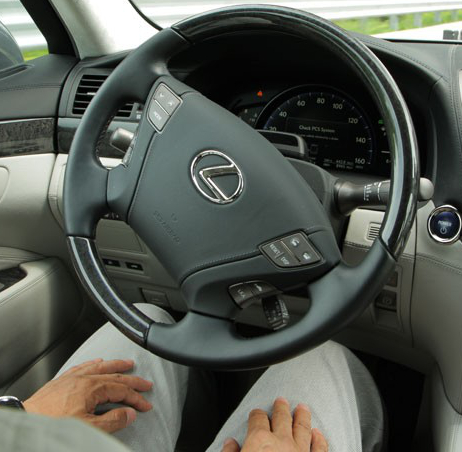Robo-car makers shoot for mature goals
 The leaders of the emerging field of driverless cars are turning their attention to what they say will be their biggest customers – elderly drivers.
The leaders of the emerging field of driverless cars are turning their attention to what they say will be their biggest customers – elderly drivers.
Toyota Motor Corporation has announced a $US50 million investment in autonomous-vehicle research, including advanced robotics and artificial intelligence.
The company says it has specific goals of reducing road injuries and fatalities, and will work with older and impaired drivers as the first jumping points for “self-driving” technologies.
Dr Gill Pratt - the mastermind of the DARPA Robotics Challenge and leader of Toyota’s new research effort – says smart cruise control and other interim technologies are “the easy parts”, but artificial intelligence and predictive-behaviour aspects will be a big challenge.
The $50 million will essentially be split between two researchers - Professor Fei Fei Li at Stanford and Professor Daniela Rus at MIT - who will strive to “develop advanced architectures that allow cars to better perceive and navigate their surroundings in order to make safe driving decisions,” said Rus.
Dr Pratt says the research partnership will be focused on the autonomy of people, not cars.
He says the teams hope to help people get a means to control when and where they want to move “regardless of age or illness.”
“We're committing to develop together new technologies that will improve the human condition,” said Dr Pratt.
On a per-mile basis in the US, fatal crash rates increase in the 70-74 year old range and are highest for drivers in the 85 and older group.
Rus said the initiative could be “the beginning of the end of traffic accidents.”
She said an overall target is to build a car that is never responsible for a collision.








 Print
Print